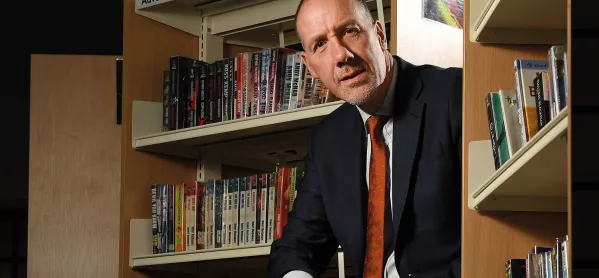- Home
- Next year we must reclaim education as ours
Next year we must reclaim education as ours

Here we are again, and, as another school year hauls itself to its bone-wearying conclusion, it’s time for a break. My gift to you is a temporary respite from my weekly Tes blogs until - just over summer’s horizon - the results season arrives.
And while the last thing you probably want to think about is the year ahead, I’m going to round off the year with some resolutions - all of them rooted in the needs of the most important people: children.
I hope next year is one where we overcome our deep-rooted snobbery over technical education, our tedious polarisation of the knowledge and skills debate, and our obsession with pupils who get GCSE grade 4s and higher. All our attention should focus on ensuring that, after 11 years of primary and secondary teaching, every 16-year-old can leave with a qualification showing that they have mastered the basics in English and maths. I hope pupils on the current margins of education - the “word-poor” as opposed to the “word-rich” - move centre stage. They deserve better from us.
I hope we’ll remind ourselves that education is about people, not spreadsheets and half-termly data drops. A headteacher wrote to me concerned about what her school’s new data tracking system was doing to the mental health of her pupils. She’d introduced a new RAG-rating system.
Her self-doubt got me thinking. What does it feel like to be a diligent, hard-working child in, say, Year 10, doing your best, and then every teacher, in every subject, every half-term rates you as “red” or “amber?”
Of course, we’re trying to tell children that, with effort, they could do even better. We’re trying to use the red and the amber to motivate them. But aren’t we really saying - starkly and relentlessly - that nothing you do is ever good enough?
And what does it feel like to be a Year 7 pupil, moving excitedly and nervously to your new secondary school, only to discover that, aged 11, your school is already focusing your education on how you will perform in your GCSEs five years later?
At a time when we are already so concerned about children’s mental health and vulnerability, we must make sure that the often bogus data on which we’re basing feedback doesn’t further undermine their self-esteem. Education is about people, human interactions, not obsessive monitoring and feedback.
I hope next year we’ll start to restore joy to the classroom. As the economist RH Tawney said: “What a wise parent would wish for their children, so the state must wish for all its children.”
I couldn’t conceive of my own children going to a school where there wasn’t a rich curriculum. A curriculum that included the arts, sport, design, plus an extra-curricular provision of trips and visits, debating, and the silly stuff of school life - the charity dressing-up days, communal Christmas lunches and the rest.
Funding pressures are squeezing the arts out of too many state schools. The government has to stop burying its head in the sand and give schools and colleges the money they need and that children deserve.
We should also be conscious that too many children in Year 6 and Year 11 end up getting reduced physical education because those lessons are claimed instead for extra Sats practice or exam intervention. And that’s not caused by funding. That’s caused by us. Our young people need the liberation, the physical and mental rebooting that high-quality sport gives.
I sense we may be at a turning point, whereby far more people are saying that education can be defined beyond the parochial narrative of “accountability measures”, “EBacc” and “data drops”. In his 1976 Ruskin speech, Prime Minister James Callaghan criticised education for being a “secret garden” - a place which looked inwards, talked to itself and failed to relate to the bigger world out there.
I suspect there is still some truth in that observation. But it doesn’t have to be that way. And there’s a growing mood to say let’s reclaim education, restore confidence to a great profession, and do precisely what ASCL’s motto says: “Act on behalf of children and young people.”
Geoff Barton is general secretary of the Association of School and College Leaders
Keep reading for just £1 per month
You've reached your limit of free articles this month. Subscribe for £1 per month for three months and get:
- Unlimited access to all Tes magazine content
- Exclusive subscriber-only stories
- Award-winning email newsletters



